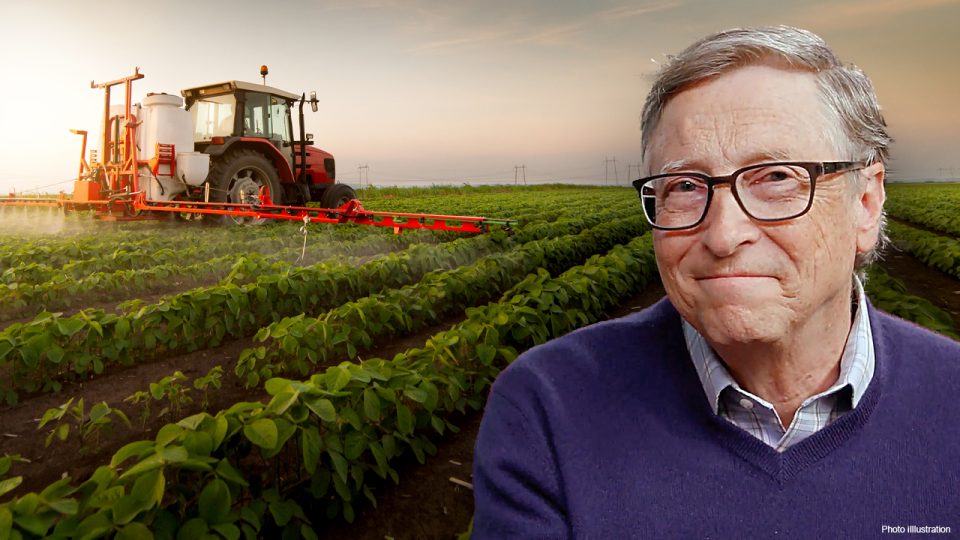Children’s Health Defense 21 November 2022
By Ron Friedman
Fifty organizations dedicated to food sovereignty and food justice issues are calling out Bill Gates over his latest claim that technology is the solution to world hunger and food sovereignty.
In an “open letter” published earlier this month, the groups addressed comments Gates made, during interviews with The New York Times and The Associated Press, about The Bill & Melinda Gates Foundation 2022 Report.
The letter’s lead authors, Community Alliance for Global Justice/AGRA Watch and the Alliance for Food Sovereignty in Africa, wrote:
“In both articles, you make a number of claims that are inaccurate and need to be challenged. Both pieces admit that the world currently produces enough food to adequately feed all the earth’s inhabitants, yet you continue to fundamentally misdiagnose the problem as relating to low productivity; we do not need to increase production as much as to assure more equitable access to food.”
The authors also criticized Gates’ claims that we’ve “underinvested in agricultural innovation” and that the Green Revolution was “one of the greatest things that ever happened.”
Gates told The New York Times:
“Helping farmers has got to be the very top of the climate adaptation agenda. And within that, you have a lot of things like credit for fertilizer, cheap fertilizer, better seeds that we should be very intent on –– funding those things and setting ambitious goals for.”
But the authors of the open letter disagreed:
“There are already many tangible, ongoing proposals and projects that work to boost productivity and food security –– from biofertilizer and biopesticide manufacturing facilities, to agroecological farmer training programs, to experimentation with new water and soil management techniques, low-input farming systems, and pest-deterring plant species.”
They also disagreed with Gates’ claim that the Green Revolution was a “resounding success”:
“While [the Green Revolution] did play some role in increasing the yields of cereal crops in Mexico, India, and elsewhere from the 1940s to the 1960s, it did very little to reduce the number of hungry people in the world or to ensure equitable and sufficient access to food.”
The authors reminded Gates that with the Green Revolution came “a host of other problems, from ecological issues like long-term soil degradation to socio-economic ones like increased inequality and indebtedness (which has been a major contributor to the epidemic of farmer suicides in India).”
They also criticized Gates’ push for genetically modified seeds, stating that “climate-resilient seeds are already in existence and being developed by farmers and traded through informal seed markets.”
“You are part of creating the very problem you name,” the groups wrote. “The AGRA (Alliance for a Green Revolution in Africa) initiative, which your foundation continues to fund, has also pushed restrictive seed legislation that limits and restricts crop innovation to well-resourced labs and companies.”
These initiatives don’t increase widespread innovation, but rather contribute to the privatization and consolidation of corporate monopolies over seed development and seed markets, they said.
The groups challenged Gates to “step back and learn from those on the ground,” and called on the media to consider how they cover Gates and his vision for the future of food.
They wrote, “we invite high profile news outlets to be more cautious about lending credibility to one wealthy white man’s flawed assumptions, hubris, and ignorance, at the expense of people and communities who are living and adapting to these realities as we speak.”
Russell Brand: It’s a ‘beautiful letter’
Russell Brand sided against Gates and with the authors of the letter, telling viewers:
“It’s a beautiful letter. It’s brilliantly articulate and the reason we want to present it to you today is because it demonstrates that criticizing Bill Gates doesn’t make you a conspiracy theorist and it demonstrates too that Bill Gates’ actions and influence are nefarious and harmful.”
Brand mocked Gates, splicing his YouTube podcast with snippets of the billionaire at his foundation’s recent Goalkeepers 2030 Conference:
“Ah, Bill Gates, he’s the answer to all the world’s problems and anyone who criticizes him is a conspiracy theorist or a considered academic concerned about him colonizing and monopolizing the world’s resources.”
But this “is not a conspiracy theory,” Brand said. “These are harmful policies designed to centralize power and control food, and people are answering back from a position of authority, integrity and expertise.”
He added:
“What you are doing is gaslighting –– presenting practical, ongoing, farmer-led solutions as somehow fanciful or ridiculous, while presenting your own preferred approaches as pragmatic.”
Brand echoed the food sovereignty group’s argument that there are “already measures in place that can be controlled and implemented by the communities themselves and don’t require the centralization of power, the patenting of seeds and crops, the technologicalization of the process of agriculture –– all, by the way –– by a fellow who seems to be buying up farmland at the moment –– by coincidence!”
Brand added:
“Gates likes to look at the world as simple data. What I offer you is this question: Is Bill Gates trying to help? Or is Bill Gates simply suggesting that the solution to all of these problems is to give Bill Gates more power?”
Watch the Brand segment here:
Statements, comments or opinions published in this column are of those of the author(s) and do not necessarily reflect the editorial policy of Warsan magazine. Warsan reserves the right to moderate, publish or delete a post without prior consultation with the author(s). To publish your article or your advertisement contact our editorial team at: warsan54@gmail.com

